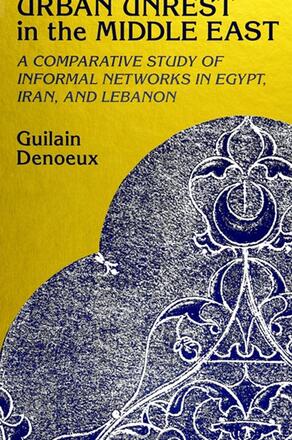
Urban Unrest in the Middle East
A Comparative Study of Informal Networks in Egypt, Iran, and Lebanon
Alternative formats available from:
Description
This book offers a systematic examination of the politics of Middle Eastern cities in a broad historical and comparative context. Focusing on the contribution of informal networks, the author examines four types. He reveals that, contrary to recent claims, informal associations do not necessarily play a stabilizing role in urban politics, but reveal themselves to be effective instruments for mobilizing popular dissent.
Denoeux identifies conditions under which these informal urban networks can change their role from system-supportive to system-challenging. His analysis highlights the impact of Islam on contemporary forms of urban violence in the Middle East, and emphasizes the destabilizing potential for the urban poor. His approach sheds new light on the politics of Islamic fundamentalism and on the nature of urban unrest in a vital yet neglected region of the world and represents a very significant contribution to an emerging literature on informal political processes.
Guilain Denoeux is Assistant Professor in the Department of Government at Colby College.
Reviews
"Denoeux situates his discussion in a comparative historical context. The focus on informal networks is especially useful as a strategy for doing the comparative politics of Islamic fundamentalism. " — Edmund Burke, III, University of California, Santa Cruz
"The author's comparisons are extremely insightful and bring new explanations for urban violence and instability, as well as leading to a better understanding of informal networks per se. His book also leads to a better understanding of the impact of 'urbanization' on the population, particularly related to Islam and to rapid urbanization. Hence the role of Islamic groups—and of Islam—is put into better perspective by his work. " — Michael E. Bonine, University of Arizona